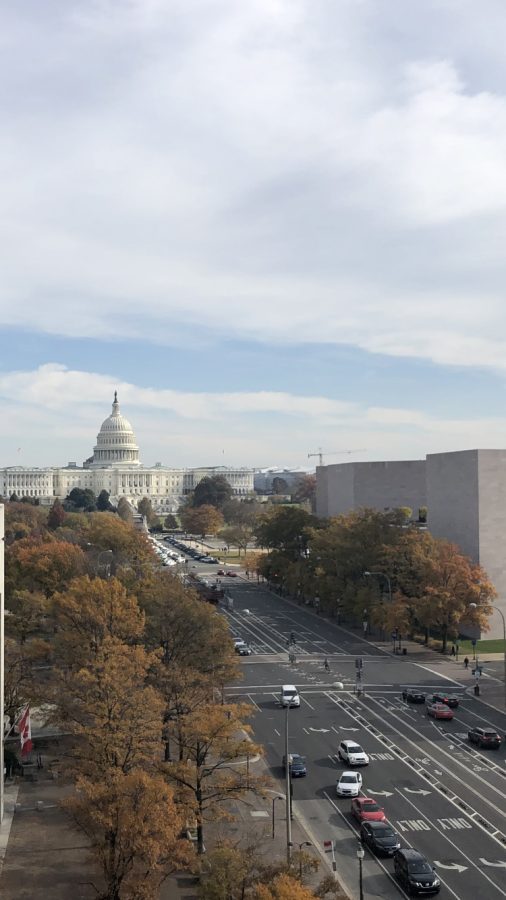Built Back Better?
Reflecting on the First Year of the Biden Presidency
Capitol Chaos: The US Capitol in downtown Washington DC. Photo Courtesy: Elliot Lyons, November 21, 2019.
January 20, 2022
After the turbulent final year of Donald Trump’s presidency, many Americans expected stability and recovery to come from a new White House. The year, however, has been marked by nearly the exact opposite effects in many ways.
With the collapse of the Afghan National Army (ANA) and the Afghan Republic’s Government, the U.S. ended its longest war in defeat, becoming no less than the third world power to fall there, following Britain and the Soviet Union.
The disastrous and rapid flight of U.S. forces from the country left arms and civilians behind and showed the weakness of the new administration in dealing with organized terrorist threats and military opposition.
On the economic front, not much is better, with a record 7% inflation reported by the US Bureau of Labor Statistics from December 2020 to December 2021, which is three and a half times higher than what is considered at all safe or healthy. Unchecked inflation has devastated nations such as Germany, Venezuela, and Hungary before, and has led to total economic collapse.
This is without mentioning the issue of growing fuel costs. While the Infrastructure Bill put forward by the President would allow for new and better roads which are badly needed in most areas, the high cost of gasoline, on average $3.49 according to AAA, the inaccessibility of alternately powered cars such as electric or hydrogen for the average American, and the proposed tax per mile driven, has led to the bill’s delay.
In addition, the Government’s economic standing on its own is terrible. The money spent on endless costly bills put forward in the House of Representatives have raised the US National Debt to well over $27 trillion as carefully counted and displayed by the National Debt Clock. To put that into perspective, it is almost 81 times the net worth of the world’s richest man, Elon Musk.
In the social sector, despite his rhetoric, President Joe Biden has done little to even attempt to help any marginalized groups. This is especially true when it comes to immigration policy, in which he has restored the Trump-era policies of border walls and was forced to restore the “Stay in Mexico” policy despite his constant opposition throughout his campaign.
Finally, when discussing political deadlock, while Congress is less divided than last year, with the Presidency and both houses in Democratic hands, it is still intensely locked down politically.
The Senate, however, is divided 50-50 along partisan lines, and with two Democratic senators, Kyrsten Sinema and Joe Manchin, constantly voting across the aisle, virtually every bill takes hours or days of debate and amendment to pass, if it ever does.
While the US claimed that the new year would bring a new government, not much has changed for the better and plenty for the worse. In a terrifying development, the United States, according to the Democracy Index, is now classified as a backsliding democracy, which means it is on the way to an autocratic government.
It has not all been failures for Biden this year, however. Despite any of his actions, he still was able to get a Democratic majority, or at least leadership in both the Presidency and Congress.
Despite this, his approval rating has floated around 43%, with his disapproval around 51%. This makes him the most disliked president on average other than Donald Trump since the Second World War.








